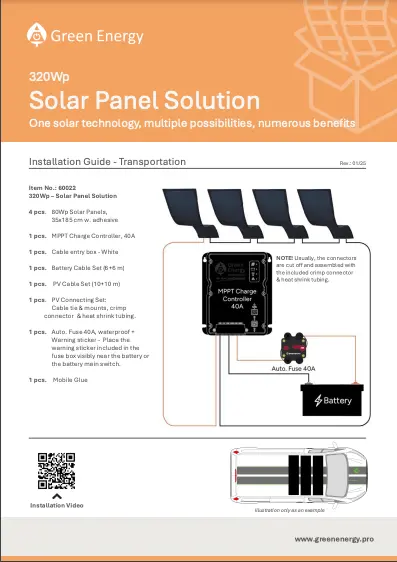CIGS Solar Panels
Thin, flexible and efficient solar panel solution
Scroll down to explore
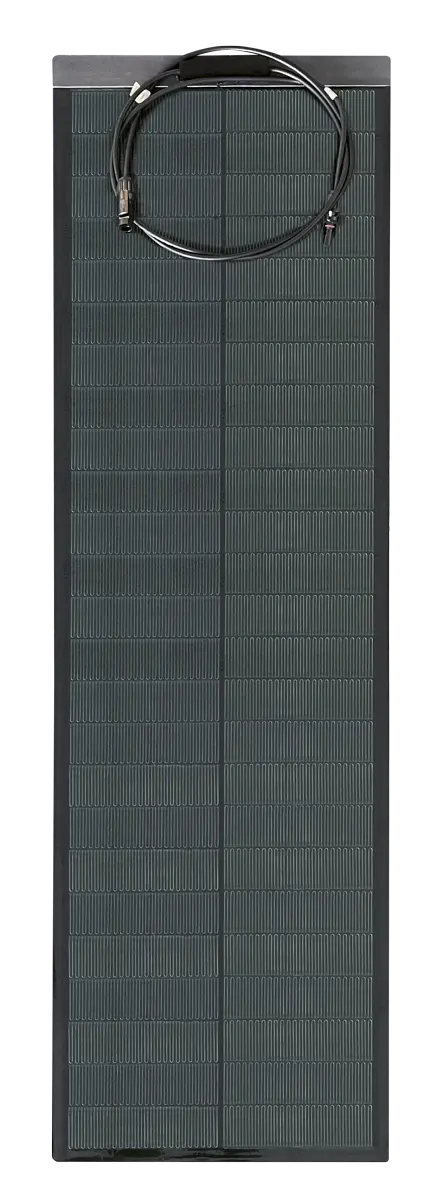
Vehicles
Lightweight and flexible
High efficiency and production
Resistance to shade and temperature
Buildings

High safety and reliability
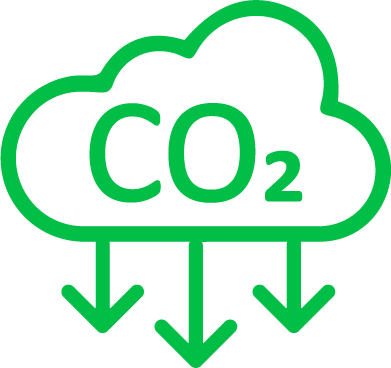
Minimal environmental impact
In addition to its high efficiency and flexibility, CIGS technology is also more sustainable than other technologies. With only 3% of the raw materials needed compared to C-Si solar cells, CIGS solar panels have a minimal environmental impact. They do not emit harmful gases or substances and require fewer materials to produce. The materials used in production come from sustainable sources, with copper extracted from cable scrap, and indium, gallium and selenide extracted through recycling and refining processes (Button: Sustainability).
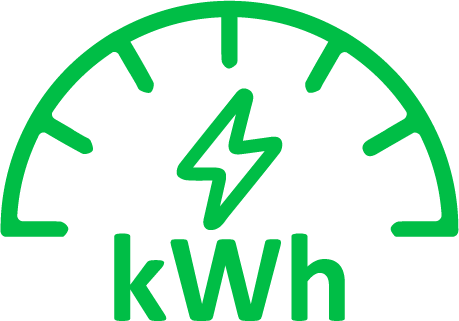
Increased fuel savings

Lightweight and flexible
Our flexible solar panels use a thin-film technology called copper-indium-gallium-selenide (CIGS). Unlike traditional crystalline glass panels, these panels offer unmatched versatility. With a thickness of only 3 mm and a weight of 2.2 kg per square metre, you can install them on low load bearing roofs, tight spaces, curved surfaces, and vehicles.

Resistance to shade and temperature

Minimal environmental impact
In addition to its high efficiency and flexibility, CIGS technology is also more sustainable than other solar technologies. CIGS solar panels are produced using far fewer raw materials compared to crystalline silicon (C-Si) solar cells. They do not emit harmful gases or substances and have a minimal environmental impact.

Safe and reliable
CIGS panels are known for their durability and reliability in all weather conditions. Their unique flexibility and robust design ensures that they can withstand harsh weather conditions and impacts without the risk of developing hotspots or microcracks. In fact, they are tested to withstand loads of up to 250kg despite being only 3mm thick. Our CIGS solar panels come with a 25-year performance guarantee.

High efficiency and production
Watt peak (Wp) is the maximum rate at which a solar power system can generate energy when working at peak performance. A watt-hour (Wh) measures how much energy a solar panel generates in an hour. While conventional silicon solar panels have a higher Wp and produce most Wh in the middle of the day when the sun is strongest, CIGS solar panels produce a more consistent and continuous Wh throughout the day as they are more efficient in shade and when there is less sun. Over the course of a year, CIGS solar panels will produce more Wh per Wp than crystalline panels.
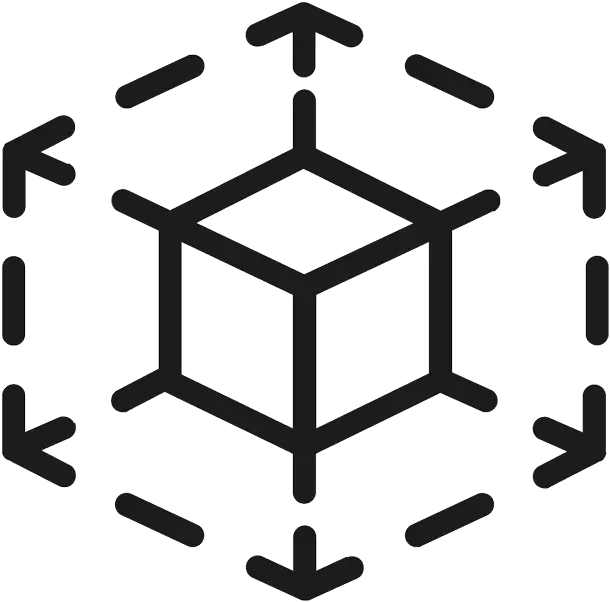
Optimised space utilisation
CIGS panels tend to have a high energy density because of their ability to absorb more sunlight at a given thickness. Together with their thinness and flexibility, this makes them ideal for buses and trucks with a limited roof size. They are easy to install and can be glued on without the need to drill holes and due to the size of the panels, can be more easily arranged to fit awkward spaces.
Minimal loss of performance at high temperatures
Efficiency
Light is the key to efficiency
Our CIGS solar panels can maintain efficiency over many hours every day. This is because our solar panels in reality are light panels, which means they will produce electricity even in cloudy weather, and also during dusk and dawn, as they absorb a wide spectrum of light wavelengths.

CIGS solar panels
The CIGS solar panel is often recognised by its slim profile, its flexibility and its light weight. CIGS solar panels are better than conventional solar panels in almost every aspect, when it comes to sustainability efforts, reliability and durability.
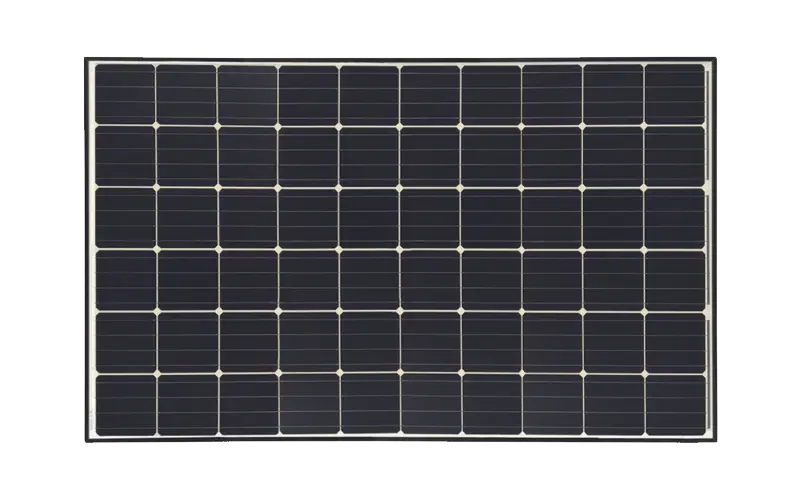
Crystalline solar panels
(C-Si / mono-Si/ poly-Si)
Crystalline solar panels are what most people recognise as conventional solar panels. They come in mono- and poly- crystalline forms. You often see these on houses and buildings. You may sometimes see crystalline solar panels mounted on vehicles; however, these are very fragile and are prone to cracks and breakages, and are more vulnerable to temperatures changes.
CIGS vs. C-Si
CIGS uses fewer raw materials and emits less CO2
The data from UNECE in the graphs below illustrate how CIGS solar panels are more environmentally friendly compared to conventional crystalline solar panels in two important areas.
Grams of CO₂ emitted / kWh produced
Lower is better
CIGS compared to poly-Si
Roof mounted
CIGS compared to poly-Si
Ground mounted
Mg of minerals and metals used / kWh produced
Lower is better
CIGS compared to poly-Si
Roof mounted
CIGS compared to poly-Si
Ground mounted
Solar panel solutions
What's included when you buy a solar panel solution
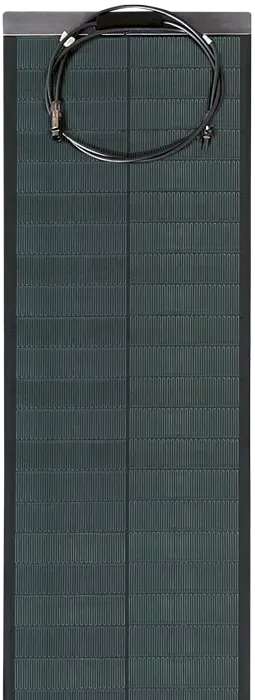
CIGS Solar Panels
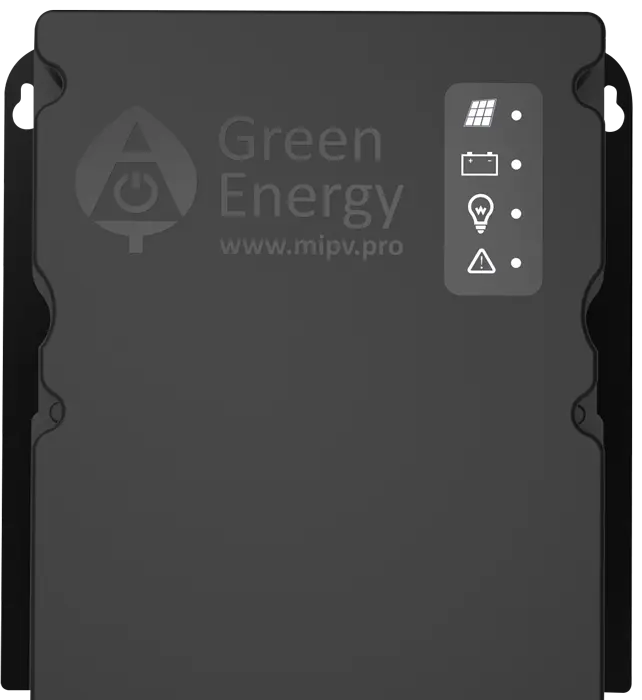
MPPT Charge Controller
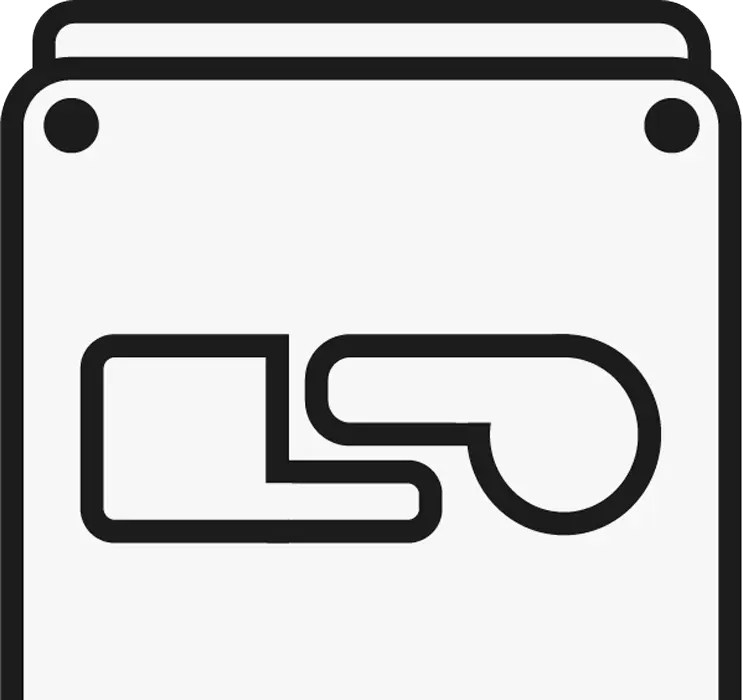
Fuse

PV connection cable
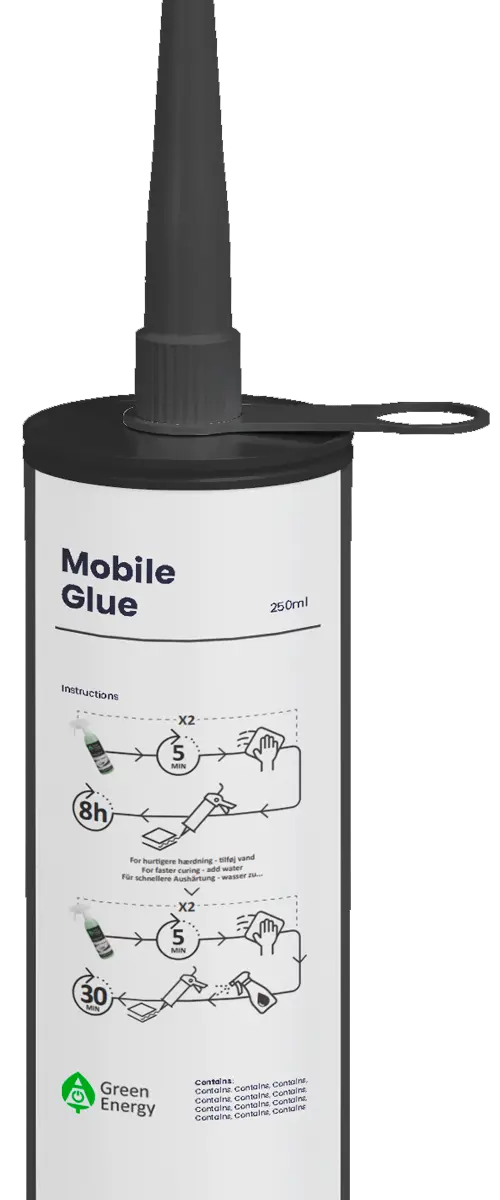
Mobile glue
Flexible options
Solutions to fit any vehicle
Our solar panel solutions are available in a wide range of sizes, and will fit almost every type of vehicle. Here are some of our most popular combinations.
2 x 55 Wp panels
110 Wp
2 x 80 Wp panels
160 Wp
3 x 55 Wp panels
165 Wp
2 x 95 Wp panels
190 Wp
4 x 55 Wp panels
220 Wp
3 x 80 Wp panels
240 Wp
4 x 95 Wp panels
380 Wp
8 x 80 Wp panels
640 Wp
12 x 80 Wp panels
960 Wp
Customised
Custom Solution
All our solar panel solutions includes our IoT MPPT charge controller.
Get in touch
You can purchase our solutions from our network of distributors.

Buy CIGS solar panels for transport
Buy our CIGS Solar Panel Systems for vehicles through our distributors.
CIGS solar solutions for building and construction
Talk to our distributors to find the right CIGS Solar Panel Solution for your next project.

Not sure about your needs?
Have questions? Our team is ready to help you with guidance and expertise.
For our planet
CIGS solar panels are the most environmental friendly solution
Our CIGS solar panels are a great sustainable solution, not only because of the production of renewable energy, but also because the carbon emissions related to manufacturing are very low and uses fewer raw materials compared to traditional solar panels.
